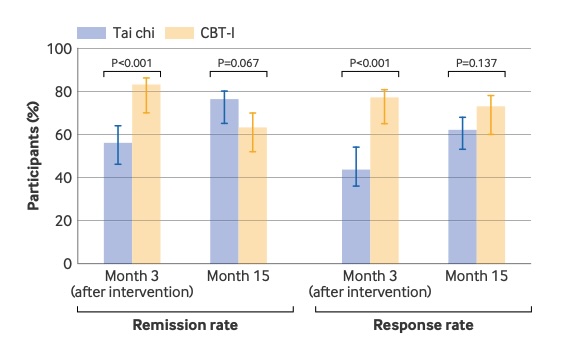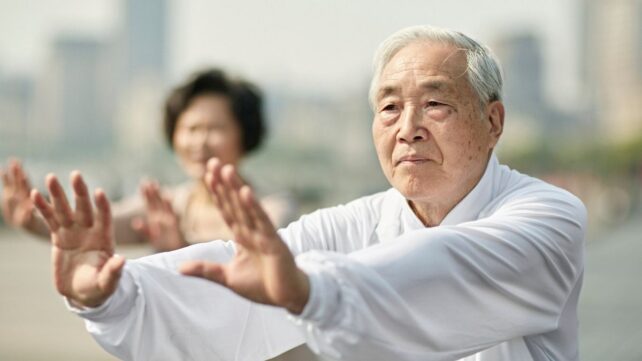As the years pass, it can become harder to get a good night's rest. The most common sleep disorder in middle-aged and older adults is chronic insomnia, which for many translates to around three years of relatively sleepless nights.
A new study suggests a popular, gentle exercise may improve sleep as effectively as the top insomnia therapy.
Hong Kong University exercise physiologist Parco M. Siu and colleagues compared the first-line treatment for this sleep disorder, cognitive behavioral therapy for insomnia (CBT-I), with regular sessions of tai chi.
Millions of people around the world practice tai chi, a low-impact martial art that originated in China, often referred to as 'meditation in motion'.
Related: One Form of Exercise Improves Sleep The Most, Study Finds
Given that science has shown similar styles of exercise (as well as meditation and mindfulness) can benefit sleep, researchers suspected tai chi may be a useful companion to existing treatments.
The study recruited 200 ethnic-Chinese adults who were above the age of 50 and lived in Hong Kong. All participants had been diagnosed with chronic insomnia.
Participants were prescribed a course of 24, one-hour group sessions of either CBT-I or tai chi (the 24-form Yang style, to be specific) with 100 people assigned to each group. Sessions of either CBT-I or tai chi were held twice a week, for three months.

By the end of these treatments, the CBT-I group reported a greater reduction in their insomnia symptoms than those in the tai chi group, with changes assessed using a common seven-question screening tool called the Insomnia Severity Index.
But when the researchers assessed participants again 15 months later, the tai chi group had 'caught up', enjoying improvements in sleep quality and duration, quality of life, mental health, and physical activity level that were on par with the CBT-I group.
Interestingly, 31 of the 85 tai chi participants who returned for the 15-month check-in had continued their tai chi practice after the intervention period, albeit at a lower frequency.
Meanwhile, just 13 of the 82 CBT participants who returned for a follow-up assessment reported using the skills and knowledge they had acquired during their CBT sessions in the subsequent months.
This suggests that tai chi's accessibility and ease of integration into people's lifestyles may benefit its long-term effectiveness.
Chronic insomnia can have serious impacts on the body, placing individuals at a higher risk for cardiovascular disease, mental disorders, and cognitive impairment.
It's important that people seek professional medical help for their chronic insomnia. CBT, unlike tai chi, has been proven to be an effective insomnia treatment with minimal side effects.
But accessing CBT for insomnia can sometimes involve long waiting periods because of a scarcity of trained therapists, and depending on access to healthcare, appointments can be expensive or subsidized under limitations.

This study suggests signing up for tai chi classes could be beneficial in getting a better night's sleep, especially in the long term, as a supplement to existing therapies. And there are a range of other health benefits associated with tai chi, too.
"This finding supports the use of tai chi as an alternative approach for the long-term management of chronic insomnia in middle-aged and older adults," the authors write.
This research was published in the BMJ.

